ASTANA — Local designers participated in the Sandwich of Identity presentation at the Global Fashioning Assembly 2024, supported by the Creative Industries Alliance of Qazaqstan, the Born Nomad business incubator and the TransforNation Public Foundation, on Oct. 9 in Astana.
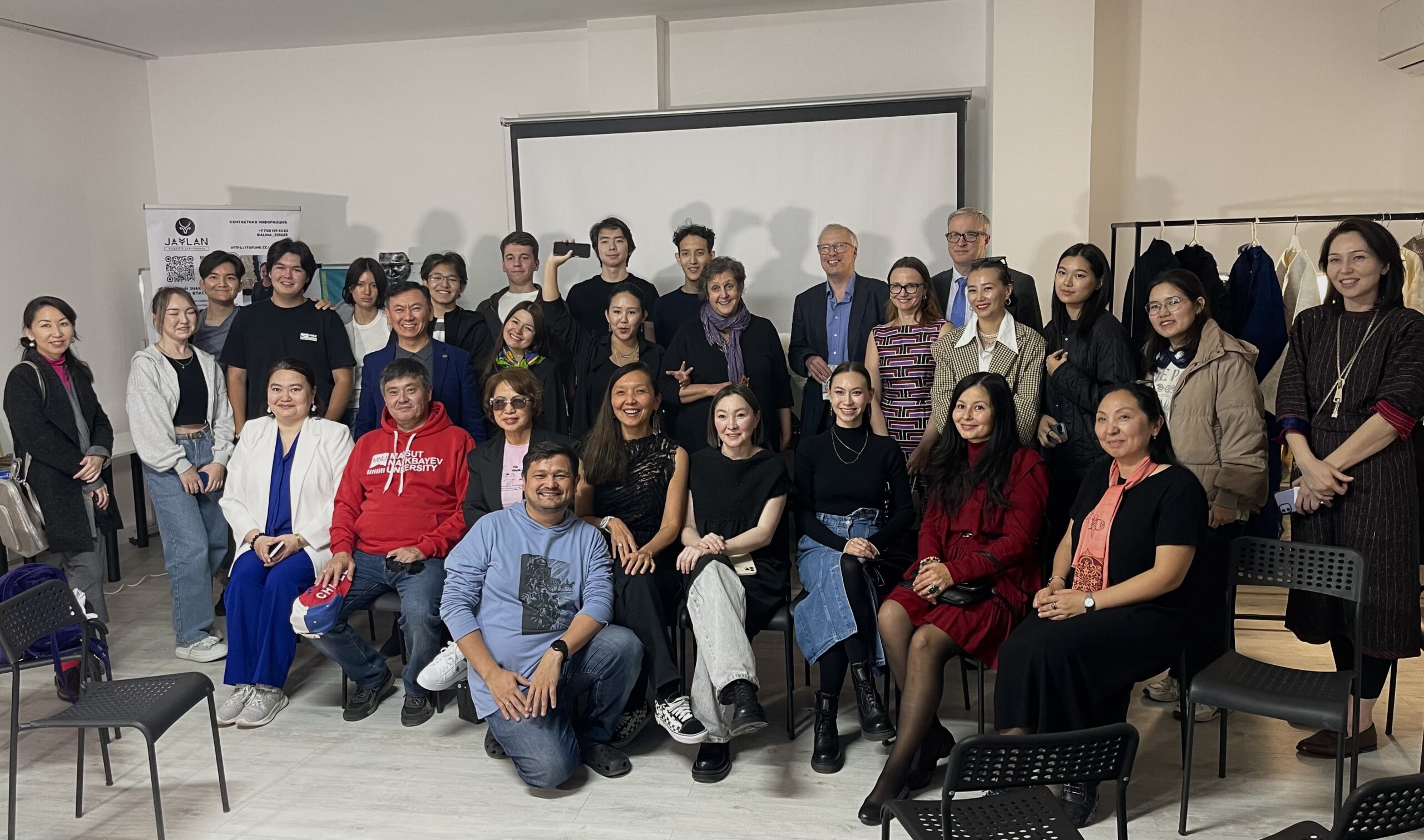
Local designers participated in the Sandwich of Identity presentation at the Global Fashioning Assembly 2024. Photo credit: The Astana Times/Aruzhan Ualikhanova.
The Global Fashioning Assembly 2024 is an international platform that brings together local fashion communities to showcase their artistry and exchange ideas, fostering collaboration and learning. This unique event gathered 20 creative collectives from 26 countries, where Kazakhstan’s contribution centered on the exploration of how post-colonial and post-Soviet traumas continue to shape national identity, even as the nation embraces global trends and innovation.
Participants discussed important issues such as globalization’s impact on Kazakh culture and how Kazakh fashion and art can balance the preservation of cultural roots with contemporary challenges. The discussions with cultural scholars and curators focused on how long Kazakhstan’s creative industries would continue to look to the past and when they might shift their focus more fully toward the future.
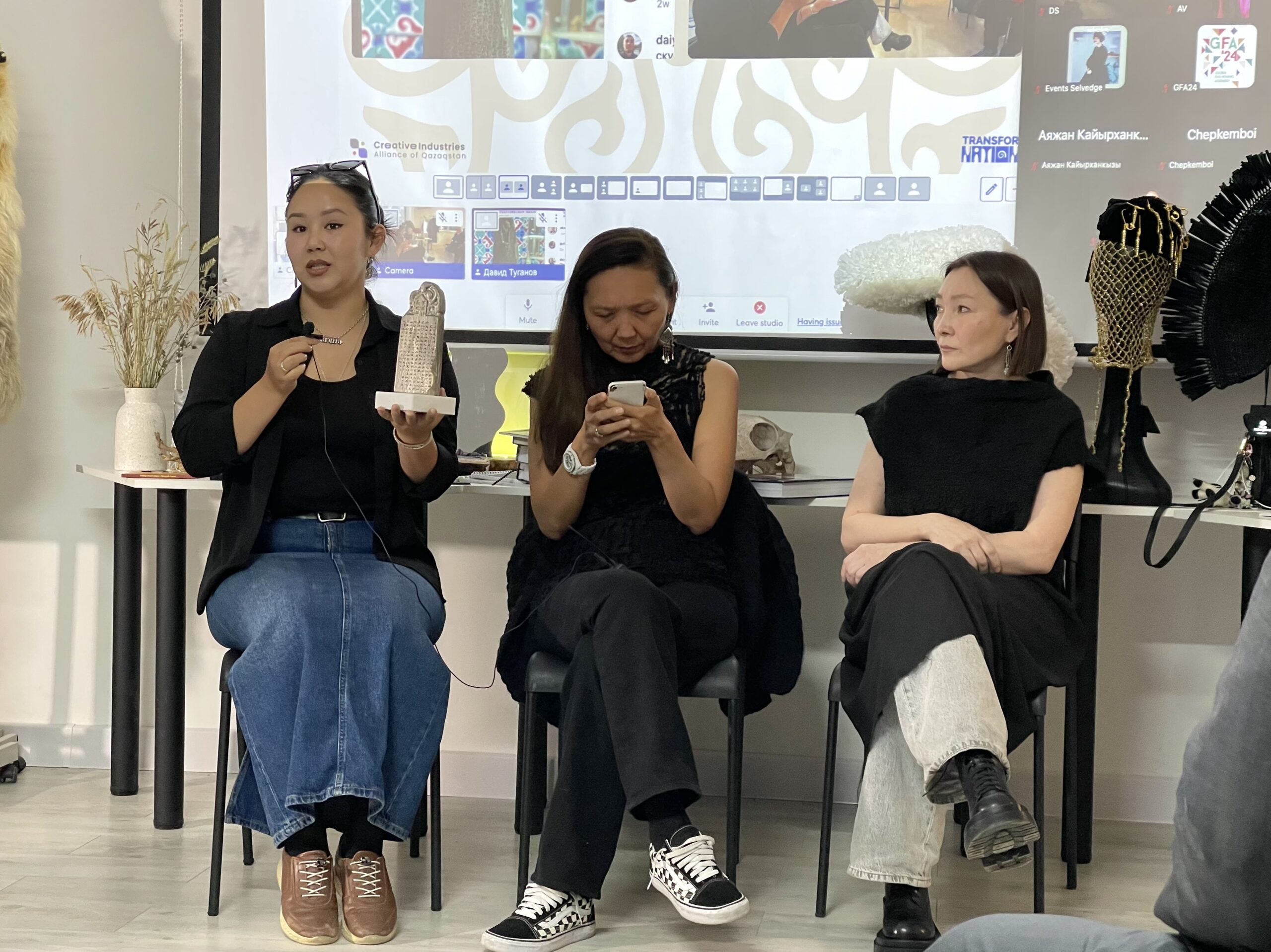
Alina Abilda, Aika Alemi and Kamilya Suleimenova (from left to right) during the discussion. Photo credit: The Astana Times/Aruzhan Ualikhanova.
Alina Abilda, founder of the JAYLAN jewelry brand, emphasized the strong connection between jewelry and Kazakhstan’s cultural heritage.
“Jewelry and historical legacy are directly intertwined. Many are returning to their roots, asking ancestral questions. Whether it’s the history, symbolism or semantics of vast Turkic culture—these forms and symbols in jewelry are a tribute to our culture and provide an incredible boost for the future, as long as they remain modern and stylish. We don’t need to reinvent the wheel, just reexamine our view of our historical legacy,” said Abilda.
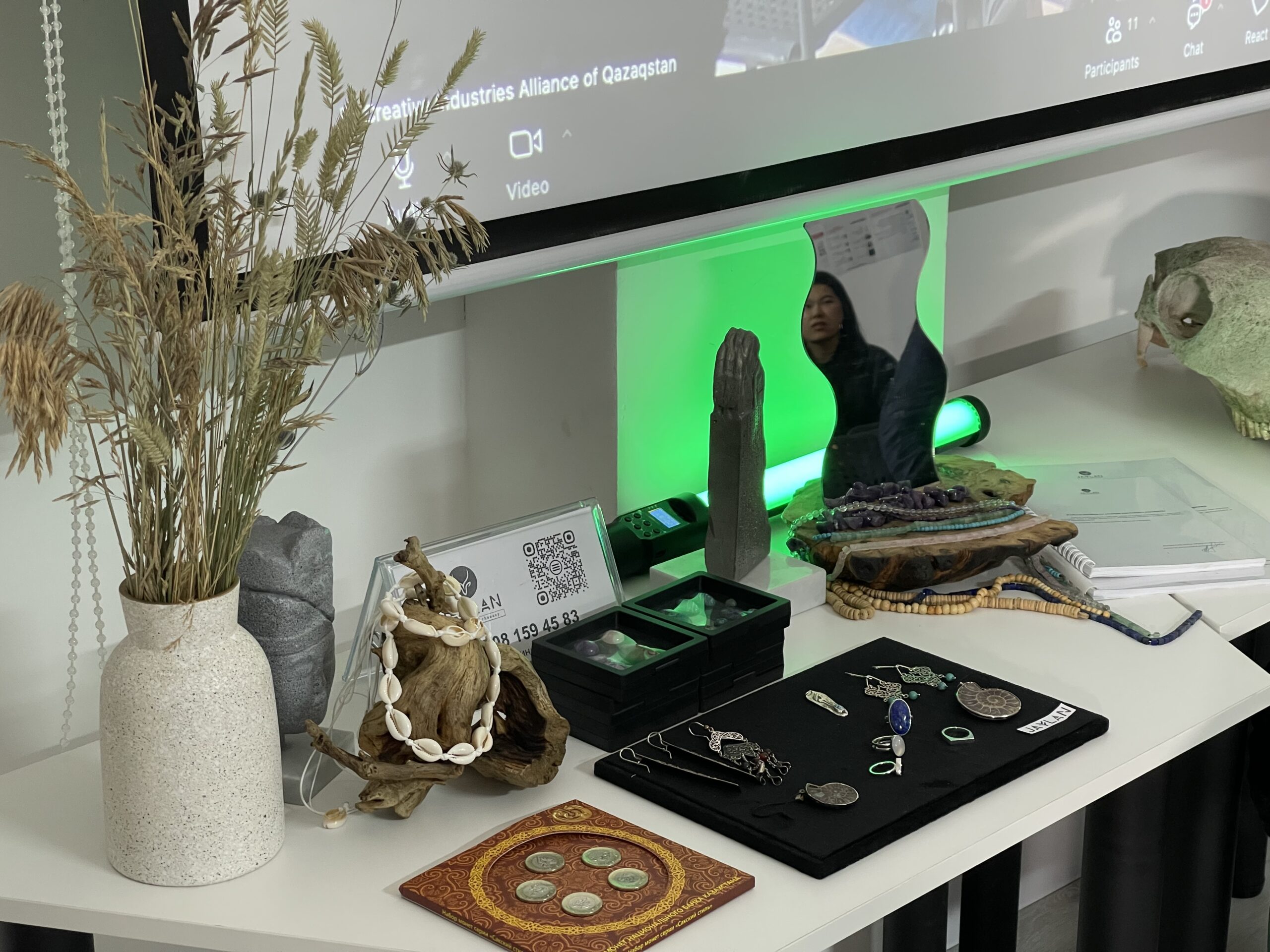
Jewelry from JAYLAN brand founded by Alina Abilda. Photo credit: The Astana Times/Aruzhan Ualikhanova.
Designer Aizhan Zhuzbay highlighted Kazakhstan’s role in craftsmanship and modern design, drawing inspiration from the country’s rich cultural past.
“Kazakhstan is considered a third-world country in terms of craftsmanship and contemporary art. However, historically, we have so many amazing artifacts, such as the discovery of the ‘golden man,’ which demonstrate our past’s endless sources of inspiration, shapes, and forms,” Zhuzbay said.
She also noted a shift in fashion trends, with a growing interest in national clothing and traditional decorative arts. These trends, partially driven by political events and a desire to assert national identity, have overcome initial skepticism and are now globally respected. Modern ethnic designs have found international success, with Kazakh designers making their mark on the global stage.
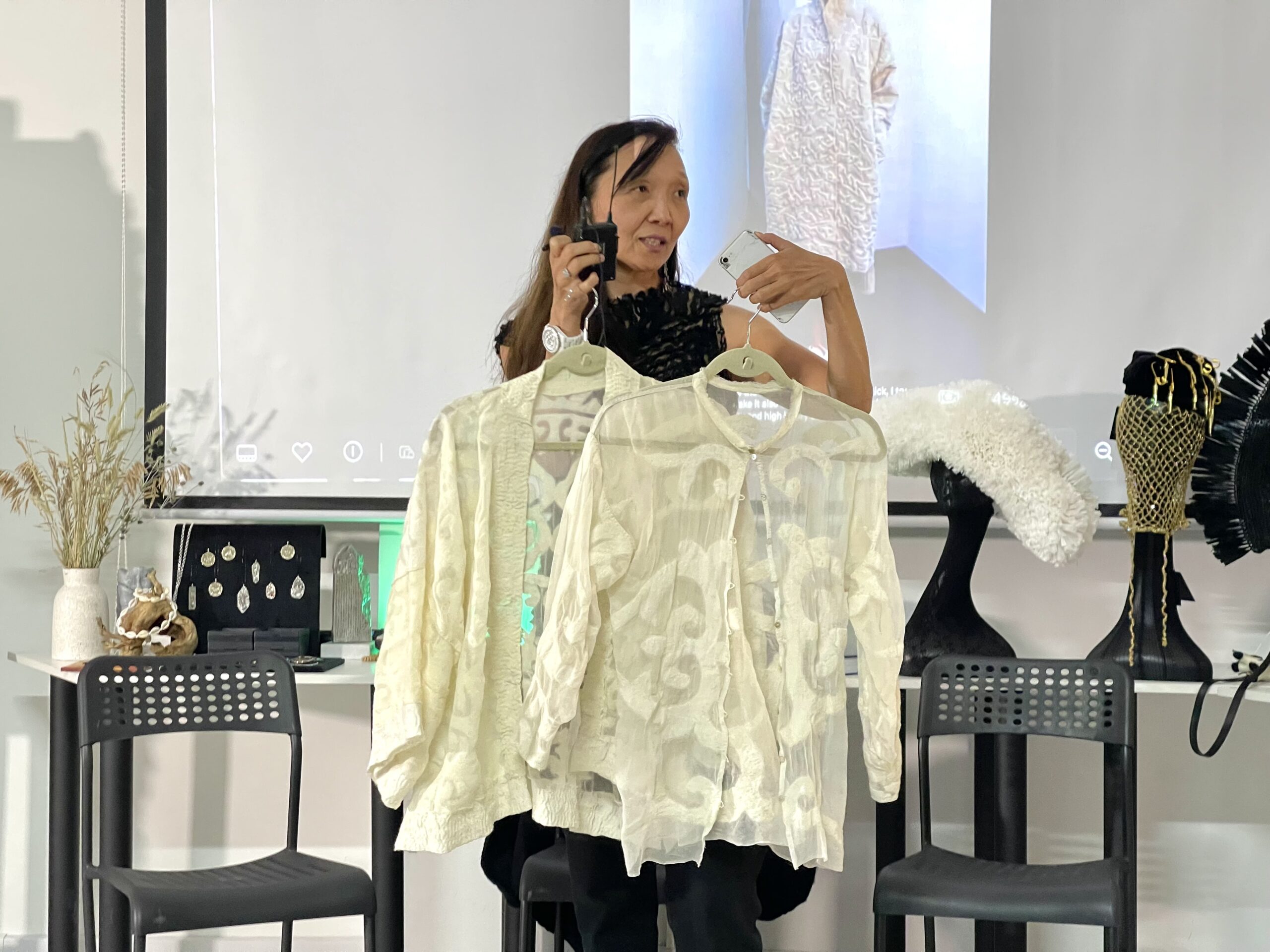
Aika Alemi presented clothes from her clothing design brand. Photo credit: The Astana Times/Aruzhan Ualikhanova.
One example is the work of Aika Alemi, a board member of the Creative Industries Alliance of Qazaqstan, head of the Born Nomad and founder of her own clothes brand, who employs traditional patchwork techniques and adapts them to modern fashion, with her designs now sold in France and Switzerland.
Zhanna Assanova, founder of the Syldyr project and co-curator of “The Treasure Island” exhibition, advocates for a modern, conceptual approach in art and design.
“There is no need to repeatedly copy ornaments like ‘koshkar muiz’ (the horns of the ram) or use images of camels and yurts. I want to show Kazakhstan that a conceptual approach in art exists, and the artisans can pursue this direction. Local designers can achieve world-class status and earn a living through conceptual jewelry art,” said Assanova.
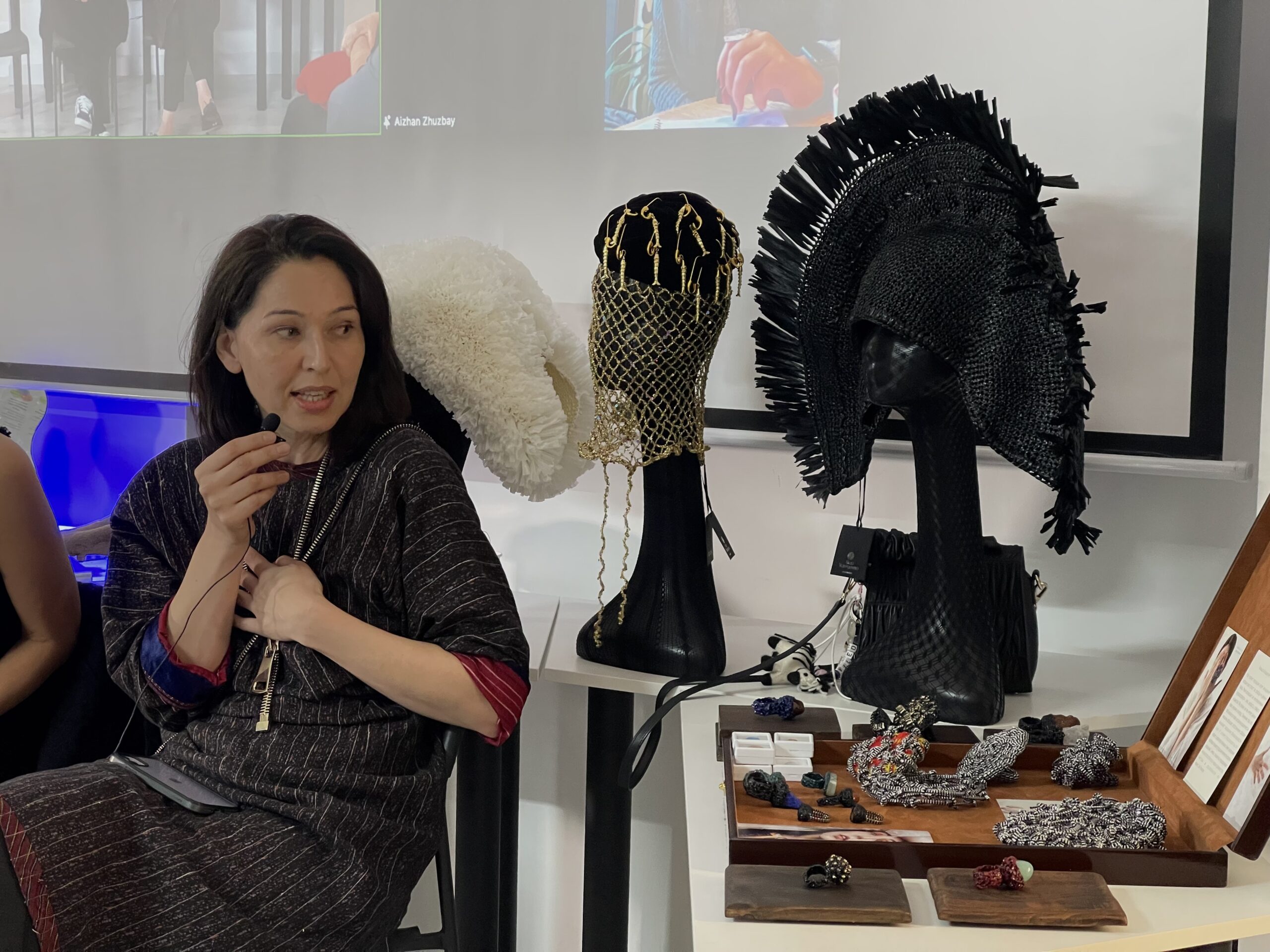
Zhanna Assanova during the discussion. Photo credit: The Astana Times/Aruzhan Ualikhanova.
Designer Aliya Zhamantayeva, known for her headpieces, eyewear and other unique accessories under the brand Aliya Valeryevna, spoke of how her nomadic background influences her creations.
“I identify myself as a nomad designer. I travel extensively and buy interesting materials and textures from the countries I visit. I discover and collect different materials to make unique designs,” said Zhamantayeva, who recently relocaterd to New York, where her designs have gained traction.
The event also featured a presentation of works by designers, models, artists and other creatives, who used their platforms to explore the intricate relationship between past and future in Kazakh fashion and art.
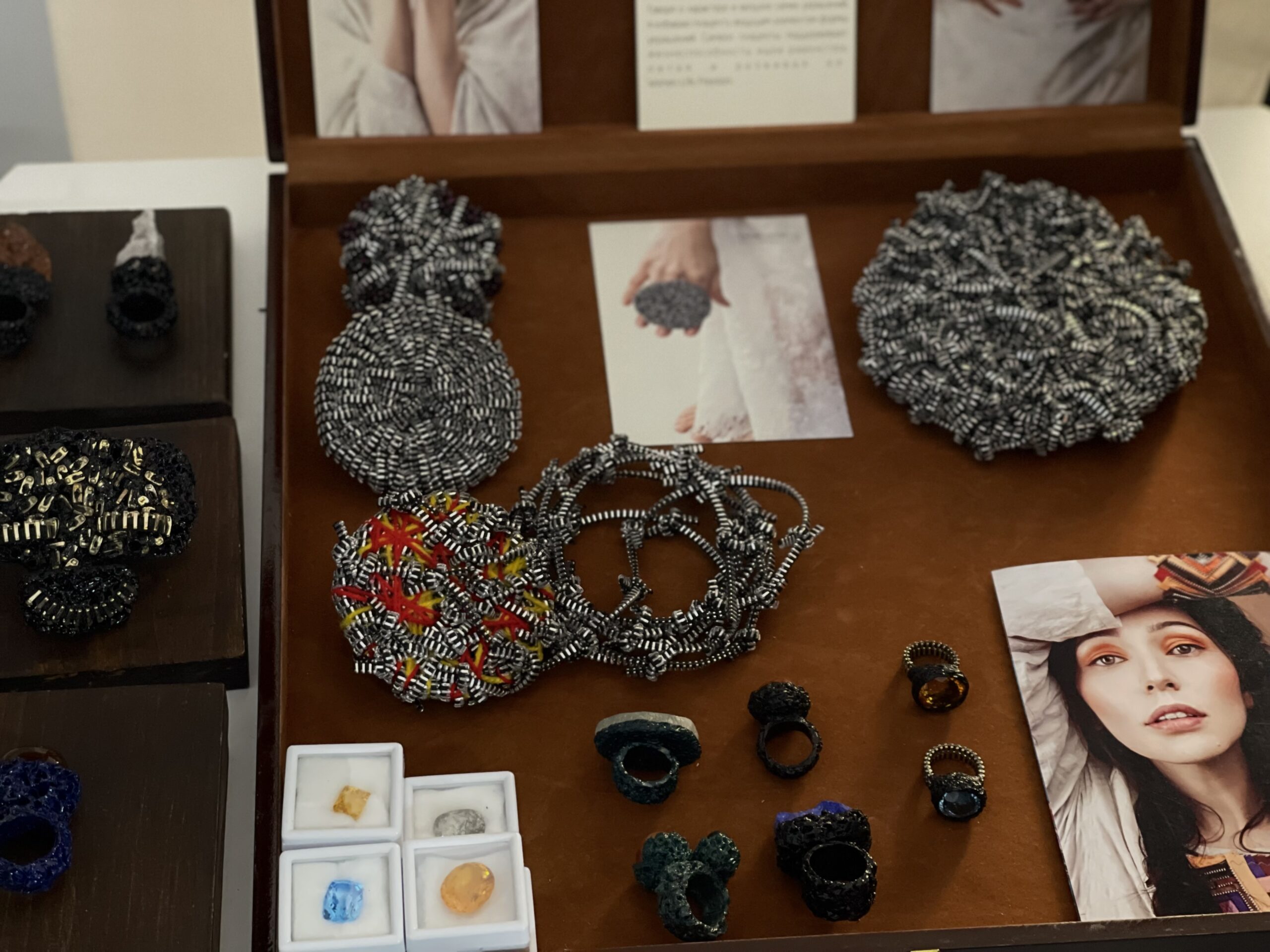
Jewelry made by Zhanna Assanova. Photo credit: The Astana Times/Aruzhan Ualikhanova.
Kamilya Suleimenova, a felt-based designer and founder of the SHIMAI brand, discussed the challenges faced by emerging artists in Kazakhstan.
“In design schools in Kazakhstan, they only teach Western methods of creating clothing. I had to learn felt design on my own, using trial and error. Today, I teach it, but I still face challenges because I don’t have an art education and the art community can be difficult for newcomers to break into.”
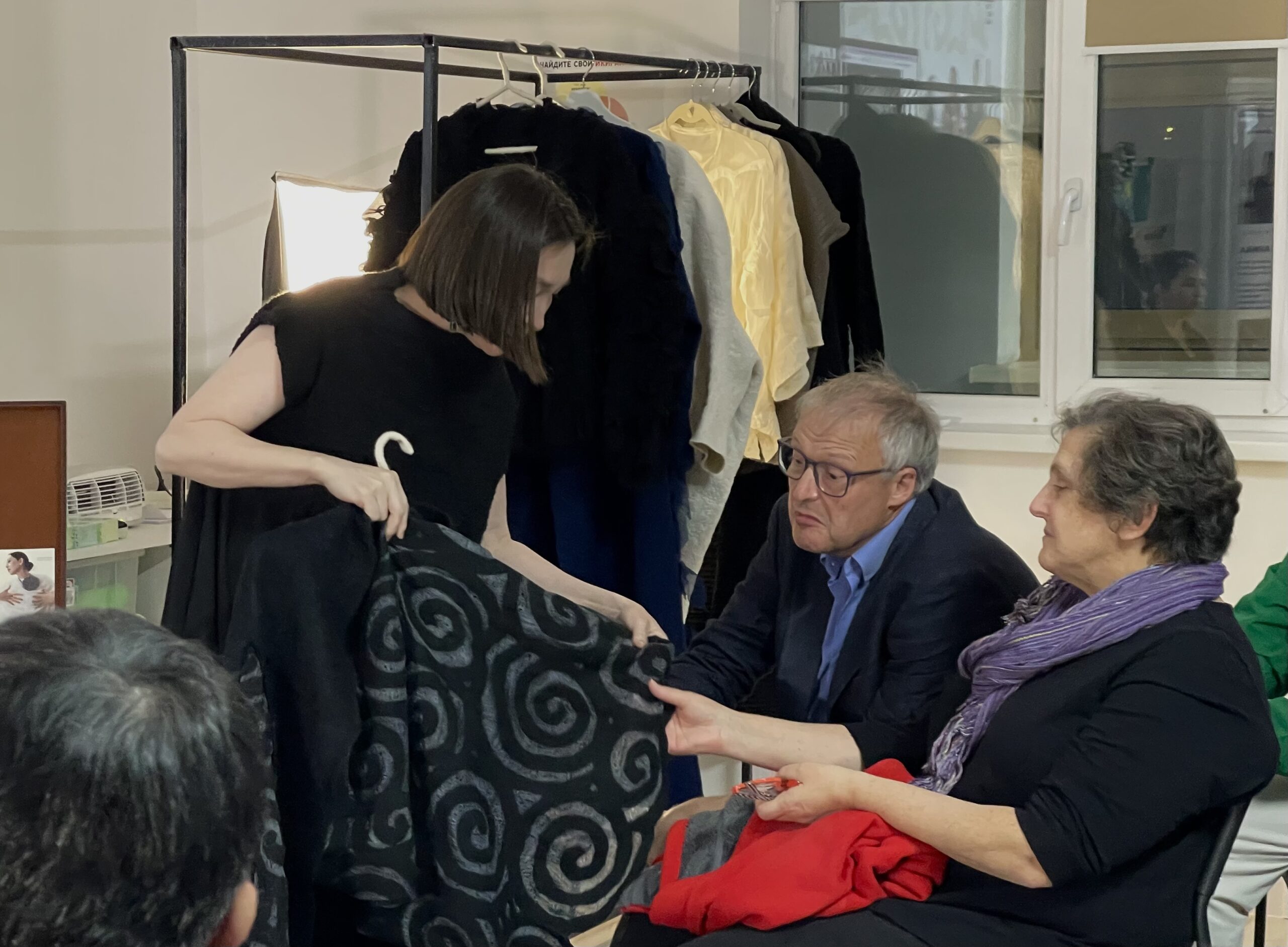
Kamilya Suleimenova, a felt-based designer, showed the clothes from the SHIMAI brand that was founded by her. Photo credit: The Astana Times/Aruzhan Ualikhanova.
The Sandwich of Identity served as a platform for dialogue on how Kazakh fashion and art can evolve, keeping their unique identity intact while embracing the future.
The event was also streamed online, allowing people from different countries who were interested in the discussion to join and actively participate. The audience had the opportunity to ask the speakers questions and share their thoughts in real-time.
